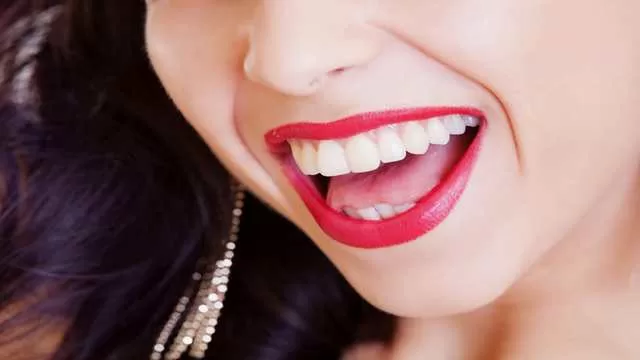Good oral hygiene is crucial for overall health, as your smile reflects your body’s state. However, many daily habits unknowingly damage our teeth. Here are ten surprising ways you might be harming your teeth and how to stop:
1. Chewing Ice Cubes
Contrary to popular belief, chewing ice cubes is not good for your teeth. It can erode enamel, cause painful cracks, or even break teeth. These cracks can grow over time, eventually leading to a fracture that requires a dentist visit and unnecessary expenses. If ice chewing is a habit, try drinking ice water through a straw or opting for ice-free beverages.
2. Using Teeth as Tools
Your teeth are designed for eating and smiling, not for opening bottles or packaging. Using them as tools can break your teeth, injure your jaw, or lead to accidental swallowing. Save your teeth by using the right tools for these tasks instead.
3. Smoking
Smoking has several negative consequences for oral health. Tobacco dries the mouth and increases plaque buildup around teeth. The toxic substances in cigarettes reduce the vascularization of soft tissues surrounding the teeth, leading to conditions such as tooth surface spots, gum disease, and even mouth cancer. Quitting smoking can significantly improve your oral and overall health.
4. Nail Biting
Nail biting introduces bacteria into your mouth, leading to infections in the mouth and digestive system. The repetitive friction stresses tooth structures, causing splints and fractures. It also contributes to gum recession and root resorption. The stress from nail biting can worsen muscle pain between the temples and jaws due to progressive tension.
5. Drinking Soft Drinks
Soft drinks and sugary beverages are detrimental to dental health. They contain high amounts of sugar and acids that attack tooth enamel. Caffeinated drinks can reduce saliva production, further harming teeth. These beverages kill tissues like enamel and dentin, leaving teeth exposed and sensitive. Reducing or eliminating sugary drinks from your diet can protect your teeth.
6. Using a Hard Toothbrush
Many people use hard toothbrushes, thinking they clean better. However, hard bristles can increase tooth sensitivity and irritate gums. They miss tighter spaces between teeth and gums. Brushing more than two or three times a day can also wear down teeth. Opt for a soft-bristled toothbrush and brush gently to protect your teeth.
7. Eating Sticky Sweets
Sugary foods, especially sticky sweets, can get trapped between teeth and crevices, creating an acidic environment that promotes tooth decay. Saliva cannot wash away these sugars effectively. Limiting your intake of sugary foods and brushing after consuming them can prevent tooth decay.
8. Incorrect Brushing
Brushing your teeth correctly is essential. Use a proper brush and brush at least three times a day. Rushing through brushing can lead to serious damage like gum disease, cavities, and bad breath. Proper brushing prevents bacteria proliferation and keeps teeth and gums healthy.
9. Drinking Sour Juices
Citrus juices, while rich in vitamin C, are highly acidic. Excessive intake can demineralize tooth enamel, similar to soft drinks. Frequent consumption of acidic products destroys enamel, exposing underlying dentin and making teeth vulnerable to sensitivity and decay. Moderation is key to protecting your teeth.
10. Consuming Excess Coffee and Wine
The dyes in coffee and wine can stain and darken teeth over time. Excessive consumption leads to tooth pigmentation, making them look old. Limiting these beverages and practicing good oral hygiene can help maintain a bright smile.
Maintaining good oral hygiene and being mindful of these habits can significantly improve your dental health. By making small changes, you can protect your teeth and keep your smile bright and healthy.

